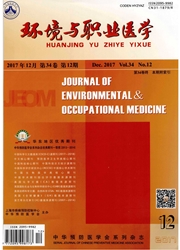

 中文摘要:
中文摘要:
近年来,室外大气污染,主要包括细颗粒物(PM2.5)污染物,受到公众的广泛关注。家用空气净化器的产量和销量呈历史性的快速增长,家长提出了在学校安装空气净化器的诉求。学校作为公共场所的室内环境,使用针对家庭环境而研制的空气净化器,在满足教室的通风换气、安全疏散、传染病防控等方面,有诸多不相宜甚至矛盾的地方。学校教室安装空气净化器的使用和维护,目前缺乏相关社会公共部门的有效监管,这为后续的使用带来诸多不确定性。学校室内环境中使用空气净化器的人群健康效应,还需要进一步开展基于环境医学的调研和科学评估。相关管理部门可以此作为出发点,制定中长期的学校室内空气质量改善措施,为保护儿童青少年的身心健康,建设安全、健康、舒适的校园室内环境作出积极贡献。
 英文摘要:
英文摘要:
In recent years, ambient air pollution, in particular fine particulate matter (PM2.s), has attracted intensive attention from the public. The national production and consumption of air purifiers have hit records in history in China; therefore, and parents are calling for air purifiers to be installed in classrooms. In perspectives of administration and policy-making, the large differences between school indoor environment, a public indoor environment, and residential home, a private place, should be noticed, in terms of air ventilation, safe evacuation, and control of infectious diseases. There is still a lack of effective hygiene supervision on the air purifiers in classrooms in China. The health effects of using air purifiers in schools need deep scientific investigation and scientific data support. It is suggested to the government or committees that the strategy on prevention measures should be developed in fighting against the air pollution in school indoor environment, which would help improve children and adolescents' health and create a safe and healthy school indoor environment in the future.
 同期刊论文项目
同期刊论文项目
 同项目期刊论文
同项目期刊论文
 期刊信息
期刊信息
